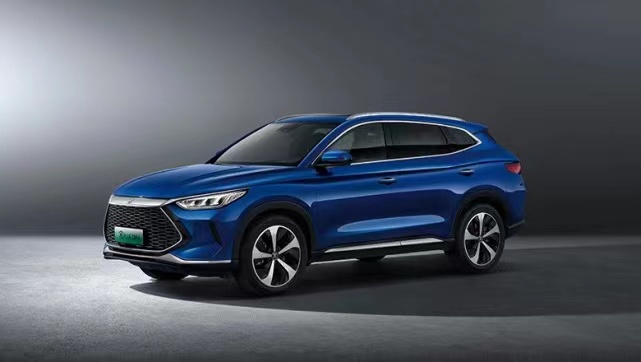The independent brand has established a dominant position in the new energy vehicle industry as a consequence of the ongoing marketing of numerous new energy strategies.

After decades of growth, China’s auto industry has steadily reached maturity and achieved industrial chain perfection, dominating the global market in terms of scale. Major international vehicle brands, including those from the United States, Germany, Japan, and Korea, have established a presence in China through launching significant products through joint ventures.
Joint ventures dominated the market during the conventional period of fuel-powered cars, whereas Chinese brands were comparatively weak. However, self-owned brand cars have recently brought up new prospects under the new developments, and the market performance is quite strong. This is due to the wave of automobile electrification and intelligence.
According to monthly data issued by the Passenger Car Market Information Association, retail sales in China’s small passenger car market decreased 9.3 percent on a year-over-year basis to 1.648 million units in November. From January through November, there were a total of 18.366 million units, an increase of 1.8 percent from the previous year.
It is important to note that the independent brand has established a dominant position in the new energy vehicle market as a result of the ongoing promotion of various new energy strategies. BYD, Geely, GAC, and other traditional automakers succeeded admirably in the new energy industry, and the market base kept growing. Data indicated that in November, the penetration rate of privately owned new-energy vehicles hit a record high of 51.9 percent.

Independent brands actually perform well on the vehicle export market in addition to the domestic market. The Passenger Car Market Information Association reports that 82,000 new-energy passenger cars were exported in November.
The data from the previous 10 years show that China’s support policies for the new energy vehicle industry have increased. Chinese automakers have actively complied with the policy directive to support the expansion of the new energy automotive sector’s overall strength. Whether it is product design, product quality, R&D, or production capacity, it can fulfill the needs of the global varied market.
“There is still promise for releasing further global demand for alternative energy vehicles in the future. China’s manufacturing chain of new energy vehicle is comparatively comprehensive, and the scale impact will result in lower costs.” as reviewed by Cui Dongshu, “New energy vehicles are exporting more and more these days. As recognition grows and the service network expands, the chances for Chinese new energy cars in international markets will increase.”
However, the Chinese auto market has also experienced “supply greatly outstripping demand” as a result of the expansion in production capacity. The market operation is under a lot of pressure due to the sudden surge in automotive inventory.
“Only 38% of employees, according to a study by the Passenger Car Market Information Association, are hopeful about November sales, well below forecasts for the domestic auto market’s present performance. The operating pressure might perhaps be significantly higher given the current circumstances.” According to Cui Dongshu, “the whole auto market is relatively poor, particularly the traditional fuel vehicle sector, and it is anticipated that the traditional fuel car would see negative growth in 2022.”
According to Cui Dongshu, the new energy vehicle market is still exhibiting strong and rapid growth trends. It is anticipated to reach 6.5 million wholesale units this year, 5.9 million retail units, and 600,000 units for exporting. Some high-end, high-quality products in China’s new energy vehicle lineup were once popular by customers. Independent brand-new energy cars have a lot of high-end potential, according to Cui Dongshu.
Independent brands can now compete in the high-end electric vehicle market thanks to the quickly growing new brands represented by NIO and Xiaopeng. China’s top-tier intelligent electric brand names, including Dongfeng, Geely, SAIC, and Changan, have all emerged in the last two years.
“With the upgrading of the primary market consumption, consumer demand for high-end items is increasing stronger, and the adoption rate of new energy vehicles will reach a high level,” said Cui Dongshu.
